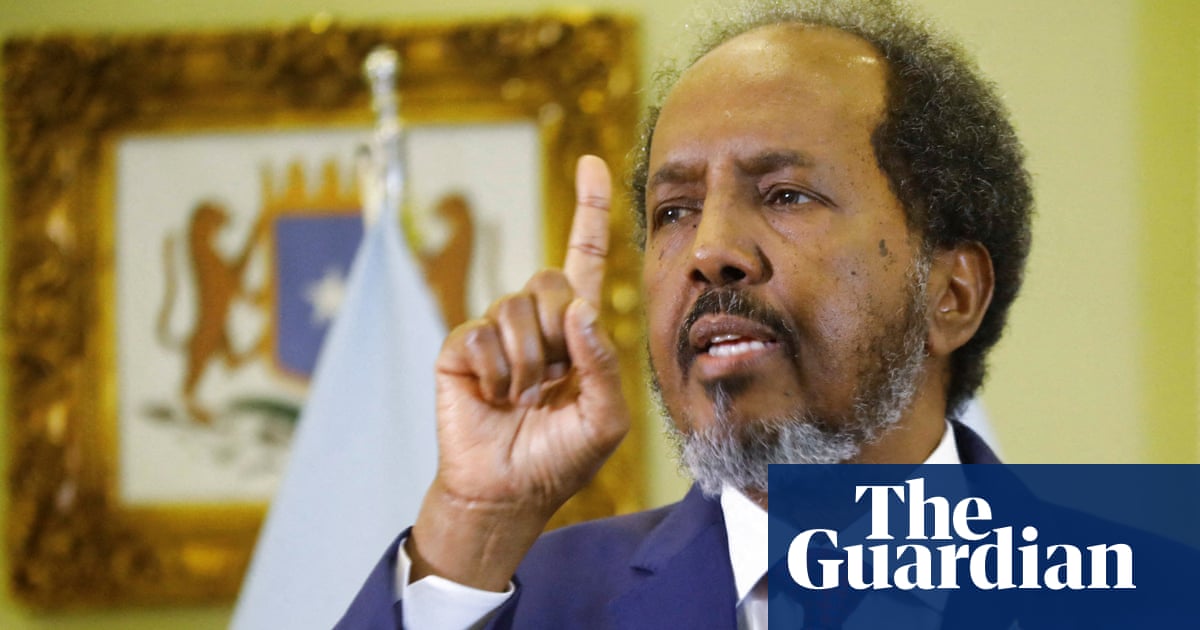
An overhaul of Somalia’s constitution, scrapping its power-sharing system and handing the president increased control, is threatening to destabilise the fragile country, as its wealthiest and most stable state refuses to recognise the changes.
The amendments risk worsening violence, the information minister from the semi-autonomous state of Puntland has warned. Mohamud Aidid Dirir told the Guardian that “almost a totally new constitution” had been introduced without input from the state’s leaders. He accused the Somali president, Hassan Sheikh Mohamud, of using parliament to “gather authority into his hands”.
Somali lawmakers voted overwhelmingly last weekend to adopt a slew of amendments to the constitution, which will reshape the political and electoral system and hand more power to the president. The parliamentary speaker, Adan Mohamed Nuur Madobe, called the move “historic”.
The amendments give the president the authority to appoint and dismiss prime ministers, transferring that power from lawmakers, and grant him increased control over appointments to the electoral commission, taking away input from federal states. The current power-sharing model of government, a system that ensures the country’s four main clans get equal representation in parliament, will be also scrapped in place of universal suffrage.
“We are a fragile country still recovering from a civil war, which doesn’t have stable politics. If power is concentrated in one person’s hands, there is a risk we could go back to civil war. We have always warned that this could happen,” said Dirir.
“[Hassan] has taken power from parliament, the prime minister isn’t working. He is the foreign minister, the prime minister, the president, he is all the ministers. And now he’s taking power from the states.”
Dirir claimed Puntland was stonewalled by central government when it tried to participate in consultations. He said the region would not recognise the changes.
“We are not declaring independence, but Puntland will stand alone until it is consulted.”
In a sign of escalating tensions, the Somali government on Thursday ordered the closure of Ethiopia’s consulate in Puntland in apparent retaliation for a visit by representatives of the semi-autonomous state to Addis Ababa this week. The government also expelled the Ethiopian ambassador, citing interference in Somalia’s internal affairs.
Puntland, one of Somalia’s five federal states, was established as a separate self-governing entity in 1998, and is the country’s most powerful regional administration.
Dirir said concentrating authority in Mogadishu “threatens national unity”. “Our government is federal, which means powers are divided,” he said.
Somalia’s central government collapsed in 1991, plunging the country into civil war, made worse with the emergence of the jihadist group al-Shabaab in the mid-2000s. Millions of people have been displaced by fighting between militants and the army, and years of drought caused by failed rains. About 6.9 million people are in need of humanitarian aid.
Afyare A Elmi, a research professor at the City University of Mogadishu, said Puntland’s withdrawal from the federal system could further imperil the viability of a unified Somali state.
“If a large chunk of the country is missing in this process we are simply building a constitution for south-central Somalia.”
The other federal states, Jubbaland, South West state, Hirshabelle and Galmudug have yet to comment on the amendments. Somaliland, which declared independence from Somalia in 1991, said: “Somalia’s recent constitutional development is an internal matter.”
The former presidents Mohamed Abdullahi Farmaajo and Sharif Ahmed warned the changes would upset Somalia’s delicate power balance, while the former prime ministers Omar Sharmarke and Hassan Ali Khaire denounced the changes in an open letter also signed by the veteran MP Abdirahman Abdishakur.
Somalia’s current constitution was introduced in 2012, but was intended to be a provisional document and has long been under review. Crafting a new constitution was one of President Mohamud’s key election pledges in 2022. Last month he said further delays were “not an option”. “We are not a provisional government, but we have a provisional constitution,” he added.
Afyare Elmi said the 2012 constitution was based upon a political settlement with broad input from Somalis. “It had four key elements: federalism, clan power-sharing, regular elections and a spirit of inclusiveness to build consensus. What the government is doing now is moving away from this settlement,” he said.
Omar Mahmoud, an east Africa analyst at the International Crisis Group, wrote that “there are fundamental issues about the nature of the federal model that must be sorted out between Mogadishu and Garowe [Puntland’s capital] in order for Somalia’s governance system to function more effectively and get over the hump of recurrent on-and-off relations.
“But without the sides talking, it is impossible to get there, allowing the status quo to continue indefinitely.”












